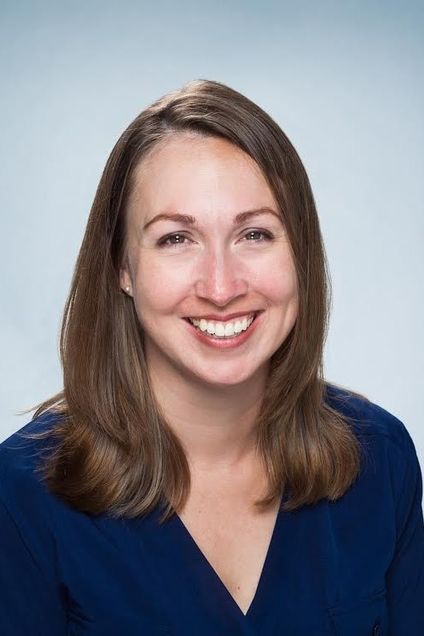Professor Cara Stepp Receives Presidential Early Career Award for Scientists and Engineers

Cara Stepp, an associate professor in the Department of Speech, Language & Hearing Sciences, is a 2019 recipient of the Presidential Early Career Award for Scientists and Engineers (PECASE). This is the “highest honor bestowed by the United States Government to outstanding scientists and engineers who are beginning their independent research careers and who show exceptional promise for leadership in science and technology,” according to the White House.
“Established in 1996, the PECASE acknowledges the contributions scientists and engineers have made to the advancement of science, technology, education, and mathematics (STEM) education and to community service as demonstrated through scientific leadership, public education, and community outreach.”
The White House coordinates the PECASE with participating government agencies including the National Science Foundation (NSF) who nominated Stepp for this honor.
“Dr. Stepp has taken on the extraordinarily difficult challenge of applying emerging capabilities in engineering and signal processing to daunting problems in human health,” said BU Sargent College Dean Chris Moore. “It is gratifying to see this research, which is emblematic of our College’s strengths and values, recognized and highlighted.”
Stepp, who holds joint appointments in Boston University’s departments of Speech, Language & Hearing Sciences and Biomedical Engineering, runs the STEPP LAB for Sensorimotor Rehabilitation Engineering where she uses engineering approaches to study sensorimotor disorders of voice and speech. Her research lab aims to better understand, rehabilitate, and augment disordered communication with the long-term goal of using its findings to help rehabilitate people who have experienced a stroke, Parkinson’s disease, brain injury, or other condition that impairs speech and swallowing. This interdisciplinary work includes collaborations with engineers, computer scientists, neuroscientists, speech scientists, speech-language pathologists, and laryngologists and has applications for voice disorders, motor speech disorders, and augmentative & alternative communication.
“NSF is pleased to recognize these recipients who, while still early in their research careers, have phenomenal track records in science and engineering and who continue to excel as talented researchers, dedicated mentors, and inspiring role models and teachers,” said Fleming Crim, NSF’s chief operating officer.
Stepp was previously honored with an Early Faculty Career Development (CAREER) Award from the NSF. Stepp’s CAREER project bridges the fields of augmented and alternative communication and human-machine interfaces by developing new technology to enable severely paralyzed individuals to communicate as quickly and reliably as human speech.
In 2018, Stepp was named a Fellow of the American Speech-Language-Hearing Association, one of the highest honors bestowed by the professional association.
She earned a PhD in biomedical engineering from the Harvard-MIT Program in Health Sciences and Technology, a master of science in electrical engineering and computer science from Massachusetts Institute of Technology, and a bachelor’s in engineering science from Smith College.